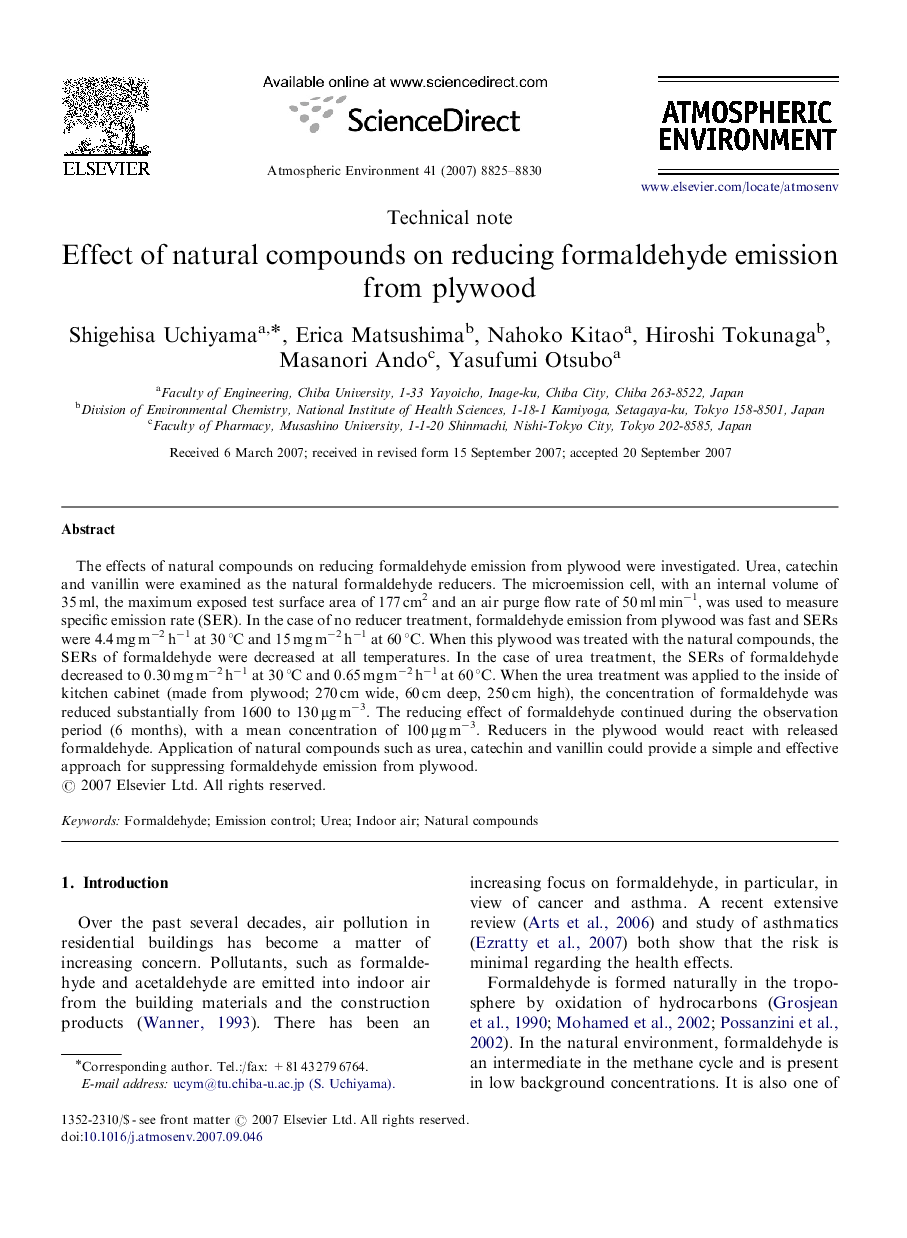| کد مقاله | کد نشریه | سال انتشار | مقاله انگلیسی | نسخه تمام متن |
|---|---|---|---|---|
| 4443038 | 1311175 | 2007 | 6 صفحه PDF | دانلود رایگان |

The effects of natural compounds on reducing formaldehyde emission from plywood were investigated. Urea, catechin and vanillin were examined as the natural formaldehyde reducers. The microemission cell, with an internal volume of 35 ml, the maximum exposed test surface area of 177 cm2 and an air purge flow rate of 50 ml min−1, was used to measure specific emission rate (SER). In the case of no reducer treatment, formaldehyde emission from plywood was fast and SERs were 4.4 mg m−2 h−1 at 30 °C and 15 mg m−2 h−1 at 60 °C. When this plywood was treated with the natural compounds, the SERs of formaldehyde were decreased at all temperatures. In the case of urea treatment, the SERs of formaldehyde decreased to 0.30 mg m−2 h−1 at 30 °C and 0.65 mg m−2 h−1 at 60 °C. When the urea treatment was applied to the inside of kitchen cabinet (made from plywood; 270 cm wide, 60 cm deep, 250 cm high), the concentration of formaldehyde was reduced substantially from 1600 to 130 μg m−3. The reducing effect of formaldehyde continued during the observation period (6 months), with a mean concentration of 100 μg m−3. Reducers in the plywood would react with released formaldehyde. Application of natural compounds such as urea, catechin and vanillin could provide a simple and effective approach for suppressing formaldehyde emission from plywood.
Journal: Atmospheric Environment - Volume 41, Issue 38, December 2007, Pages 8825–8830